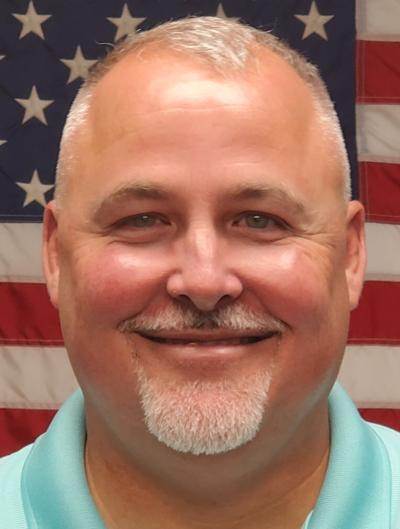A Waverly businessman is tossing his hat into the ring for the at-large seat on the Waverly City Council.
Troy Collins, 51, says he wanted to run for office because voters should have choices on the ballot.
With his announcement, three of the five races in City Hall are contested.
Councilwoman Ann Rathe, the current at-large representative, is running for a second term.
Ward 1 Councilman Brian Birgen, who also is running for a second term, is challenged by Blake Yanda. (Read Yanda’s profile in the next edition). The race for Ward 5 pits current Councilman Tim Kangas, going after his fourth term, against challenger Phil Trimble.
Mayor Adam Hoffman and Ward 3 Councilman Rod Drenkow are running unopposed.
Collins, who has never run for elected office before, said he filed his paperwork last Thursday afternoon, close to the 5 p.m. deadline, but noted it was not a last-minute decision.
He said he had been mulling it for some time as he wanted to put his skills and his energy in service to his community.
“My biggest reason is I am tired of having no voice in how our tax dollars are spent,” he told Waverly Newspapers in a telephone interview Friday. “I feel like they are squandered.”
He said his parents moved to town in 1971, when he was just a year old. Since then, he has lived, worked and now, with wife Sharon, a third-grade teacher in the Denver school district, is raising two daughters, ages 9 and 12, here.
His dad, Jim Collins, worked in town for 30 years, before moving to Readlyn, where he now resides.
In Waverly, Jim Collins opened the Villager Restaurant, which used to be located in the current Pizza Ranch; he also was the last owner Oberheu’s, a popular restaurant on the east edge of town next to the Star Motel.
A 1988 graduate of Waverly-Shell Rock High School, Troy Collins played football and basketball.
For years, he worked in area restaurants, until 1997.
In 1998, he started a job at Sysco Food Service, a position which allowed him to get into the service aspect of the business.
Five years ago, he took a job at Farm Bureau Financial Services in Waverly, where he will mark his anniversary on Nov. 1.
If elected, Collins said his goal would be to foster fiscal responsibility, implement change and then leave the city in a better shape than when he started.
“It’s like jury duty, you come in and do your duty, and then you leave,” he said of his belief in term limits. “I want to make a difference and turn the town in a direction that is fiscally responsible.
“Instead of complaining, I decided to do something about it,” he added. “I can say, ‘I gave it a shot, I tried to help.’”
Asked to provide an example of what he considers an instance of “overspending,” Collins pointed to the shelter in South Riverside Park, which, he said while “aesthetically pleasing,” was overpriced at approximately $360,000.
“In bad weather, it is not a usable structure,” he said. “It will not protect anybody. Instead of building the Taj Mahals, let’s build functional buildings that are aesthetically pleasing but let’s cut the spending. Let’s do functional buildings, don’t have to add the extra 30% cost to be an architecturally stunning building.”
He said he believes Waverly is facing tax hikes in the future.
“We are looking at big tax increases — we have to raise taxes to pay for what we are spending.”
He said that just like individuals have to live within their means, so should the city.
“The city needs to take the same approach, being diligent with other people’s money,” he said.
If elected, he said he would work with every department to identify cost savings.
He said the city should borrow this idea from business — cut costs and reward those whose frugality and enterprise leads to the savings.
In reviewing his plan, he added that he would advocate for the implementation of a program where city departments would not feel pressured to spend their allocations by the end of the fiscal year or face losing the funds.
Citing previous experiences in working with the city as a vendor, he said department heads worry that if they return unspent money to the budget, that amount may be subtracted from their numbers during the next cycle.
Collins said he would incentivize departments that return funds to the general pot, and those incentives would be both for the respective employees and for the department. The former would be rewarded by splitting approximately 20% of the amount as bonuses and the latter would be rewarded by not having the unused amount subtracted from their next budget.
“It’s a win-win,” he said. “You are not going to lose that money the next year. I don’t want people fearing for their jobs. That’s the residents of Waverly’s money and the businesses of Waverly’s money.”
















